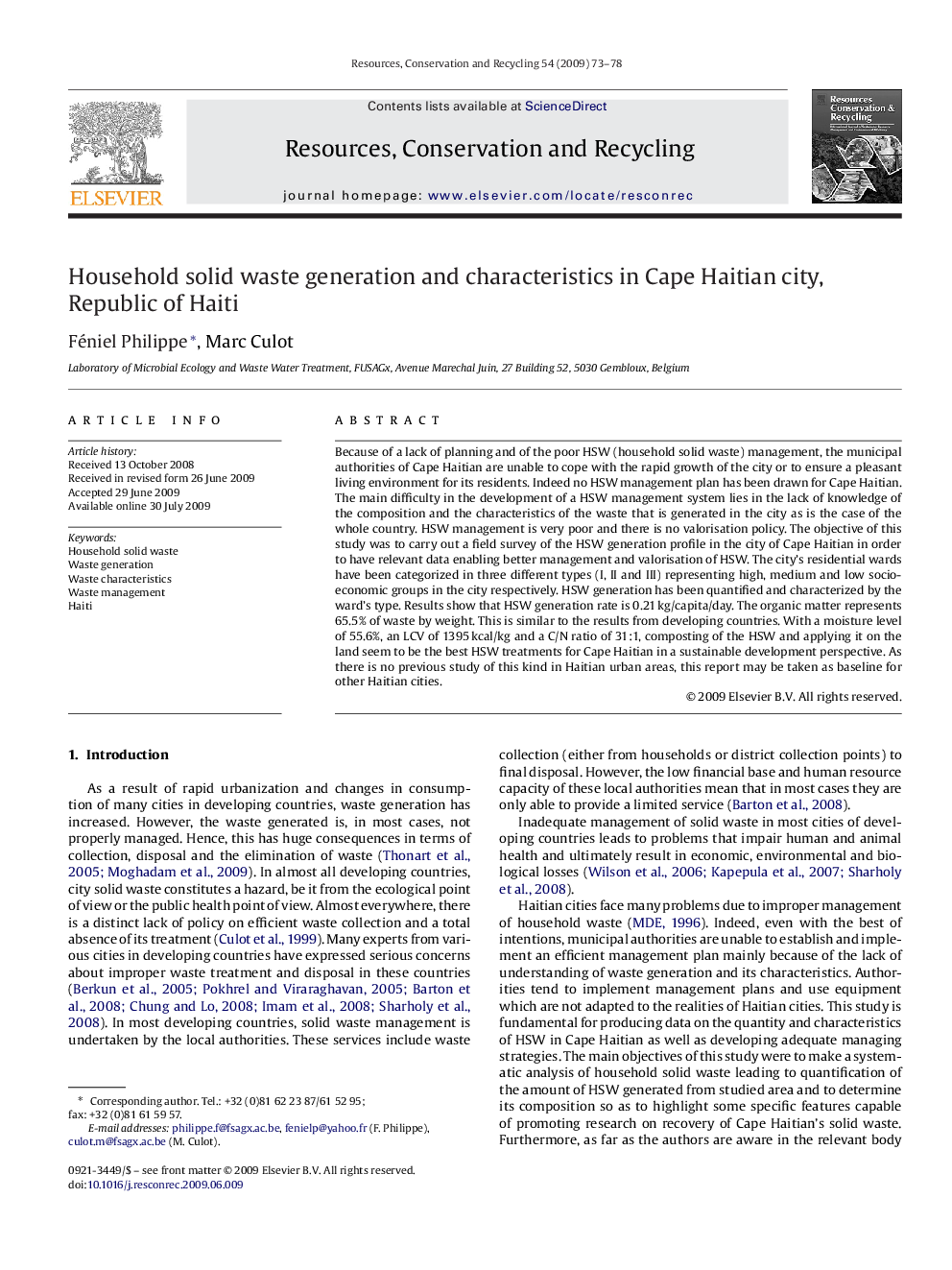| Article ID | Journal | Published Year | Pages | File Type |
|---|---|---|---|---|
| 1063890 | Resources, Conservation and Recycling | 2009 | 6 Pages |
Because of a lack of planning and of the poor HSW (household solid waste) management, the municipal authorities of Cape Haitian are unable to cope with the rapid growth of the city or to ensure a pleasant living environment for its residents. Indeed no HSW management plan has been drawn for Cape Haitian. The main difficulty in the development of a HSW management system lies in the lack of knowledge of the composition and the characteristics of the waste that is generated in the city as is the case of the whole country. HSW management is very poor and there is no valorisation policy. The objective of this study was to carry out a field survey of the HSW generation profile in the city of Cape Haitian in order to have relevant data enabling better management and valorisation of HSW. The city's residential wards have been categorized in three different types (I, II and III) representing high, medium and low socio-economic groups in the city respectively. HSW generation has been quantified and characterized by the ward's type. Results show that HSW generation rate is 0.21 kg/capita/day. The organic matter represents 65.5% of waste by weight. This is similar to the results from developing countries. With a moisture level of 55.6%, an LCV of 1395 kcal/kg and a C/N ratio of 31:1, composting of the HSW and applying it on the land seem to be the best HSW treatments for Cape Haitian in a sustainable development perspective. As there is no previous study of this kind in Haitian urban areas, this report may be taken as baseline for other Haitian cities.
